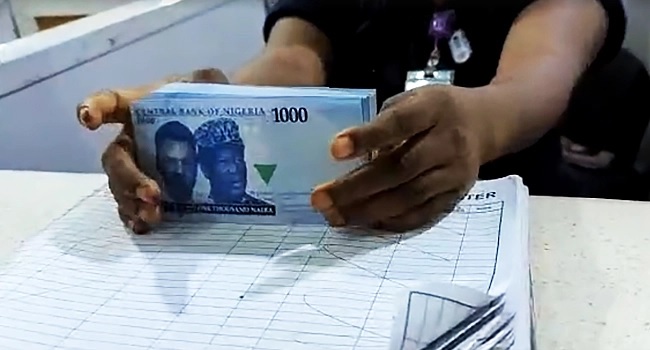
Amid scarcity of naira notes, orchestrated by the newly-introduced currency redesign policy of the Central Bank of Nigeria (CBN), Fitch Ratings, a global credit ratings agency, has warned that the situation may aggravate Nigeria’s forex crisis.
Fitch, in its report titled: ‘Nigeria’s Economic Challenges Highlight Importance of Post-Election Policies’, said the cash scarcity emanating from the naira redesign policy may trigger frugal reaction from Nigerians that will impact the economy. The organization said the policy may reduce consumer spending and boost demand for foreign currency.
The CBN said the naira redesign policy initiative is aimed at boosting its cashless policy among others. But Fitch said it was not yet clear whether there would be long-term economic benefits of the policy, such as greater use of the formal banking system or enhanced use of digital payment systems.
Tekedia Mini-MBA edition 14 (June 3 – Sept 2, 2024) begins registrations; get massive discounts with early registration here.
Tekedia AI in Business Masterclass opens registrations here.
Join Tekedia Capital Syndicate and invest in Africa’s finest startups here.
“The Nigerian Supreme Court’s suspension of a 10 February deadline for exchanging old banknotes into new eases, at least temporarily, the risk of intensifying cash shortages,” the agency said, adding the demonetization drive is still likely to be disruptive in the near term.
“Associated cash shortages may hit consumer spending and boost demand for foreign currency, aggravating foreign-exchange shortages,” it added.
The CBN’s move to replace the old N200, N500 and N1,000 notes with the redesigned notes within a short period of few months, unleashed unprecedented currency scarcity that has heavily impacted many sectors of the economy, especially the informal sector. This came along as Nigeria grapples with insufficient forex liquidity that has seen international organizations operating in the country struggle with repatriation of funds.
The forex crisis which is largely tied to fuel subsidy payments and insufficient oil output has significantly weakened the naira, compounding inflation as Nigeria takes to borrowing to fill revenue shortfalls. With inflation at over 21%, declining consumer spending was expected to see a boost during the election period.
Given its current economic situation, Fitch said that Nigeria is faced with major economic challenges ahead of elections due on 25 February, and policy choices by the incoming administration could have a significant impact on the country’s credit profile.
Nigeria’s growing public debt profile has scuttled its debt-service to revenue ratio, put at 80.7% by the Minister Finance Zainab Ahmed in January. Fitch said it downgraded Nigeria’s rating to ‘B-’ from ‘B’ in November 2022, with a stable outlook, as a reflection of the country’s continued deterioration in debt servicing costs and external liquidity.
The agency added that Nigeria’s fiscal profile is expected to remain weak in the medium term due to poor revenue growth and rising debt.
“General government interest/revenue is extremely high (47 percent in 2022 by Fitch’s estimate) and we expect it will remain so given constraints on revenue mobilization, increasing debt and high interest rates,” the agency said.
It added structurally low non-oil revenue; spending pressures and weak economic growth imply substantial fiscal financing needs as other factors contributing to Nigeria’s poor credit rating.
“The government faces external debt amortizations of $2.5 billion in both 2023 and 2024, an increase on recent years, although the majority is bilateral and multilateral debt service,” it said.
Fitch lays emphasis on Investor and Exporter window, Nigeria’s official exchange rate as key to the country’s positive credit rating. It said the prospects for the “overvalued” exchange rate reform would be influenced by the outcome of the presidential election, and could increase under a new central bank governor.
“The incumbent’s term ends in 2024, but an incoming administration could push for earlier change,” the agency said.
“A more flexible exchange-rate regime would likely be a long-term positive for Nigeria’s credit profile, although the initial economic adjustment could present macro-fiscal risks.”
However, President Muhammadu Buhari, in his broadcast on Thursday, directed the CBN to allow old N200 note to co-circulate with the new one until April 10. The move is expected to cushion the shortage of the new naira notes and ameliorate its impact on the economy.



